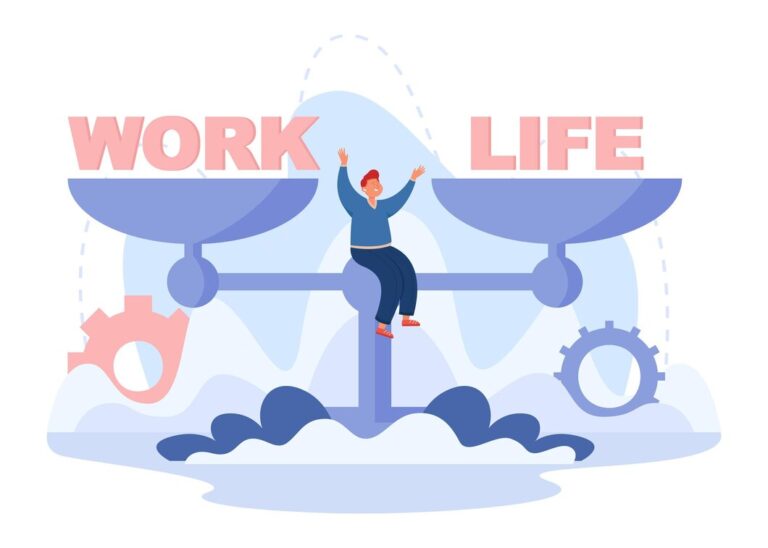What is Individual/Salaried?
A salaried worker gets paid a certain amount each week, regardless of how many hours they put in. Regular salary checks are often sent to salaried staff members every two weeks or every month. Along with paid time off, additional perks, and care, their income is frequently supplemented.
Who qualifies as a salaried employee?
According to federal legislation, employees who regularly receive a certain amount of money are not subject to qualitative or quantitative deductions. For instance, if a wage earner finishes a project earlier than expected, he cannot be paid less than expected.
A salaried worker receives compensation for 40 hours per week, although putting in fewer hours. Furthermore, it is not typically possible to receive time and half compensation for working more than 40 hours each week.
Advantages and Drawbacks of a Salaried Individual

Benefits:
Enhanced safety at work: These roles give employees a greater sense of security at work since they pay a predetermined, fixed sum each pay period.
Benefits are easier to obtain: If you work as an employee, especially full-time, your chances of receiving employee benefits are higher. It is possible to add health insurance, paid time off, and pension contributions.
Greater employment status: Compared to hourly workers, those with higher employment statuses seem more professional. Senior employment status: Your industry may become more marketable as higher positions typically come with higher income. You’ll find it simpler to advance in your field as a result.
Disadvantages:
No overtime: Generally speaking, wage workers are not entitled to overtime compensation. Hourly workers are more likely to be eligible for overtime compensation, though there are some exceptions.
Working lengthy hours: Regardless of the number of hours they put in, workers who are paid a salary frequently have to do their tasks. Often, they have to put in more hours even without the extra compensation.
Unstable work-life balance: Because wage earners typically put in lengthy hours, they may be required to work past their bedtime. The well-being of the employees may also be impacted, and this may then cut into their personal lives.

Can salaried employees' pay be withheld by their employers?
Employers may take the following deductions from an employee’s pay:
Personal absence: The worker may have taken time off due to family obligations, vacations, or other personal reasons.
Absences from work due to illness or disability: The employer is in charge of the sick leave policy, and deductions can be made before or after the sick leave is used up.
Accrued leave: The accrued leave may be subtracted if the employer offers personnel, sick, or vacation leave.
Safety violations: An employer has the right to take away things like using safety gear, smoking in an off-limits place, and disobeying protocols.
Disciplinary suspension: Employers have the right to deduct infractions of established rules from performance or attendance.
Which tax is paid by salaried individual?
Professional tax is due on behalf of all salaried and self-employed professionals (such as consultants, engineers, chartered accountants, doctors, and lawyers) who get revenue from trade, business, or any other source.
Here’s a list of some of the states which levy professional tax:
| Number of States | Range of salary income(Rs) | Range of professional tax |
|---|---|---|
| Andhra Pradesh | 15,001 to more than 20,000 | Rs 50 to Rs 200 |
| Karnataka | Above 15,000 | Rs 200 |
| Maharashtra | 7,501 to above 10,000 | Rs 175 to Rs 200 |
| Tamil Nadu | 21,001 to above 75,000 | Rs 20 to Rs 208 |
| Assam | 10,001 to above 25,000 | Rs 150 to Rs 208 |
Slab of Income Tax for Salaried Individual
Income Tax on Salary for Individuals Under 60 Years Old, FY 2019–20
| Annual Income | Income Tax Slab Rates |
|---|---|
| Up to Rs. 2.5 lakh | Exempt |
| Rs. 2.5 lakh to Rs. 5 lakh | 5%* |
| Rs. 5 lakh to Rs. 10 lakh | 20% |
| Above Rs. 10 lakh | 30% |
According to Section 87A of the Income Tax Act, 1961, those with taxable income up to Rs. 5 lakh are eligible for a refund of 100% of the income tax, or Rs. 12500, whichever is lower.
FY 2020–21 (New Tax Regime Income Tax on Salary for Individuals Under 60 Years Old)
| Annual Income | Income Tax Slab Rates |
|---|---|
| Up to Rs. 2.5 lakh | Exempt |
| Rs. 2.5 lakh to Rs. 5 lakh | 5%* |
| Rs. 5 lakh to Rs. 10 lakh | 10% |
| Rs. 7.5 lakh to Rs. 10 lakh | 15% |
| Rs. 10 lakh to Rs. 12.5 lakh | 20% |
| Rs. 12.5 lakh to Rs. 15 lakh | 25% |
| Above Rs. 15 lakh | 30% |
According to Section 87A of the Income Tax Act, 1961, those with taxable income up to Rs. 5 lakh are eligible for a refund of 100% of the income tax, or Rs. 12500, whichever is lower.
Allowances and deductions available to a salaried employee

The first head of income is “salary.” The receipt basis or the due basis, whichever comes first, will be used to compute the income subject to this head’s taxation. Allowances, perks, retirement benefits, and profit instead of income are all considered taxable salaries. Additionally permitted are several deductions from pay income.
Allowances’ Taxability
Allowances are extra money added to an employee’s pay regularly to help with expenses for specific goals. Allowances are taxed and typically set regardless of actual spending.
Types of Allowances
An employer may give their employees certain allowances based on the terms of their employment, the conditions of the workplace, or a legal necessity. Unless otherwise stated, an allowance is presumed to be wholly or partially exempt from tax under the heading “Salary.”
Fully Taxable allowances
Kindness An allowance is given to an employee to offset the impact of inflation and growing costs.
A payment made to staff members who work overtime.
Employers provide their workers with a City Compensatory Allowance to help offset the high expense of living in large cities.
Any transportation allowance given to an employee to cover the cost of traveling between his home and place of employment is subject to full taxation. However, an exemption of up to Rs. 3,200 per month is offered to employees who are dumb, orthopedically handicapped, blind, or deaf.
Medical Allowance, Tiffin Allowance, and Servant Allowance are also taxable under Section 15.
